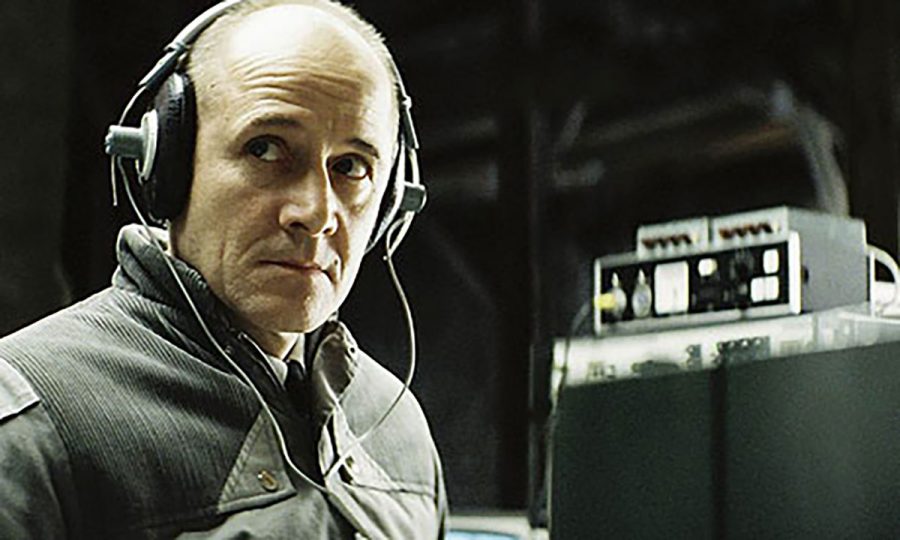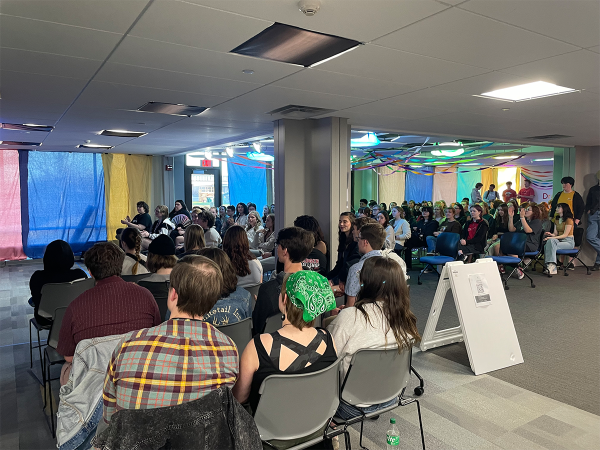‘The Lives of Others’ in review
German director’s debut film produces properly developed plot and characters
More stories from Nicole Bellford
Photo by SUBMITTED
The 2006 international film “The Lives of Others” gives the audience an inside look at the corrupt government and struggles of East German society in the Cold War era.
In German director Florian Henckel von Donnersmarck’s dramatic film, “The Lives of Others,” the audience travels back in time to the frightening and controversial Cold War era in 1984 East Germany.
The 2006 film, which has received critical acclamation and a 93 percent “fresh” rating on Rotten Tomatoes, centers around the story of German Democratic Republic (GDR) secret police agent and “legendary” Stasi Hauptmann Gerd Wiesler (Ulrich Muhe), code named HGW XX/7 as he is assigned to conduct intense surveillance on a famous German playwright, Georg Dreyman (Sebastian Koch) and his girlfriend, actress Christa Sieland (Martina Gedeck).
While Wiesler is known as a loyal agent and dedicated member of the government, the surveillance assignment soon leaves him questioning his morals and all that he stands for. Wiesler quickly learns that the Stasi government has no legitimate cause to spy on Dreyman, and the real reason for his surveillance is that Wiesler’s co-worker and Minister of Culture Bruno Hempf’s has a desire for romantic relations with Sieland.
Throughout his assignment, Wiesler finds it increasingly difficult to maintain professionalism as he develops an emotional connection to the surveillance subjects and their complicated lives. Wiesler eventually faces the ultimate conflict as he must choose between remaining true to his post and the GDR government, or following his heart, keeping Dreyman and Sieland safe.
Although I was initially fearful the film wouldn’t make sense overall due to a need for English subtitles and a setting with a relatively unfamiliar context, I would have to agree with previous critic reviews — the drama quickly diminished my doubts.
The opening scenes consisted of a black screen with text to describe the controversy and struggle of the Cold War, as well as the GDR’s interest in using surveillance footage to uncover government traitors. In addition, the film provided plenty of subtle context throughout, providing a constant sense of the fear and anxiety present in East German society during this time.
Subtitles certainly are not my favorite trait in a movie, seeing as I feel the tedious amount of reading can lead to distraction from the action, but the pace of the film compliments the subtitles well. The text moves at a speed just fast enough for the audience to comprehend what is going on while also getting a grip on the dialogue.
The character development is exceptional, adding essential amounts of emotion and conflict within the film. Muhe tackles his role as Wiesler with inherent ease, full of facial expressions that allow the audience to appreciate the depth of his character and internal struggles with morality.
Gedeck portrays her role of Sieland with raw emotion and grace, leaving me in tears as she visibly dealt with the pain of love, death and betrayal throughout the film. While Koch’s emotion was not written across his face in the role of Dreyman, the strength with which he delivered his lines provided the audience with a sense of the character’s way with words and how he uses his voice to stand up against the government.
Lastly, the film’s soundtrack does a decent job at emphasizing the drama of the events that occur, as well as providing a proper contextual tone for the setting of the Cold War. The instrumental cues execute vivid transitions between scenes of conflict and allude to further issues ahead. Aside from the music, however, the film also successfully utilizes complete silence in specific scenes to portray the seriousness of what is occurring.
In essence, this international film is one that kept me on my toes, holding out to see where Wiesler’s true loyalty lies.
“The Lives of Others,” rated R, will be playing April 28-30 in the Woodland Theater. The event is hosted by the UW-Eau Claire international film society, and admission is free with a Blugold card or campus films pass.










